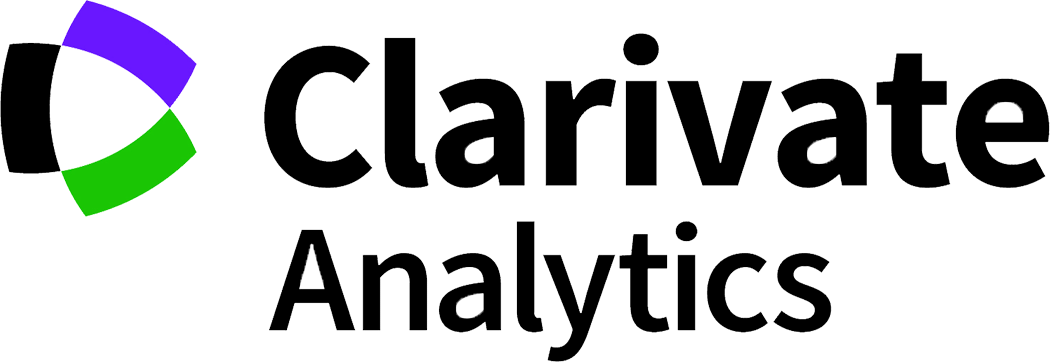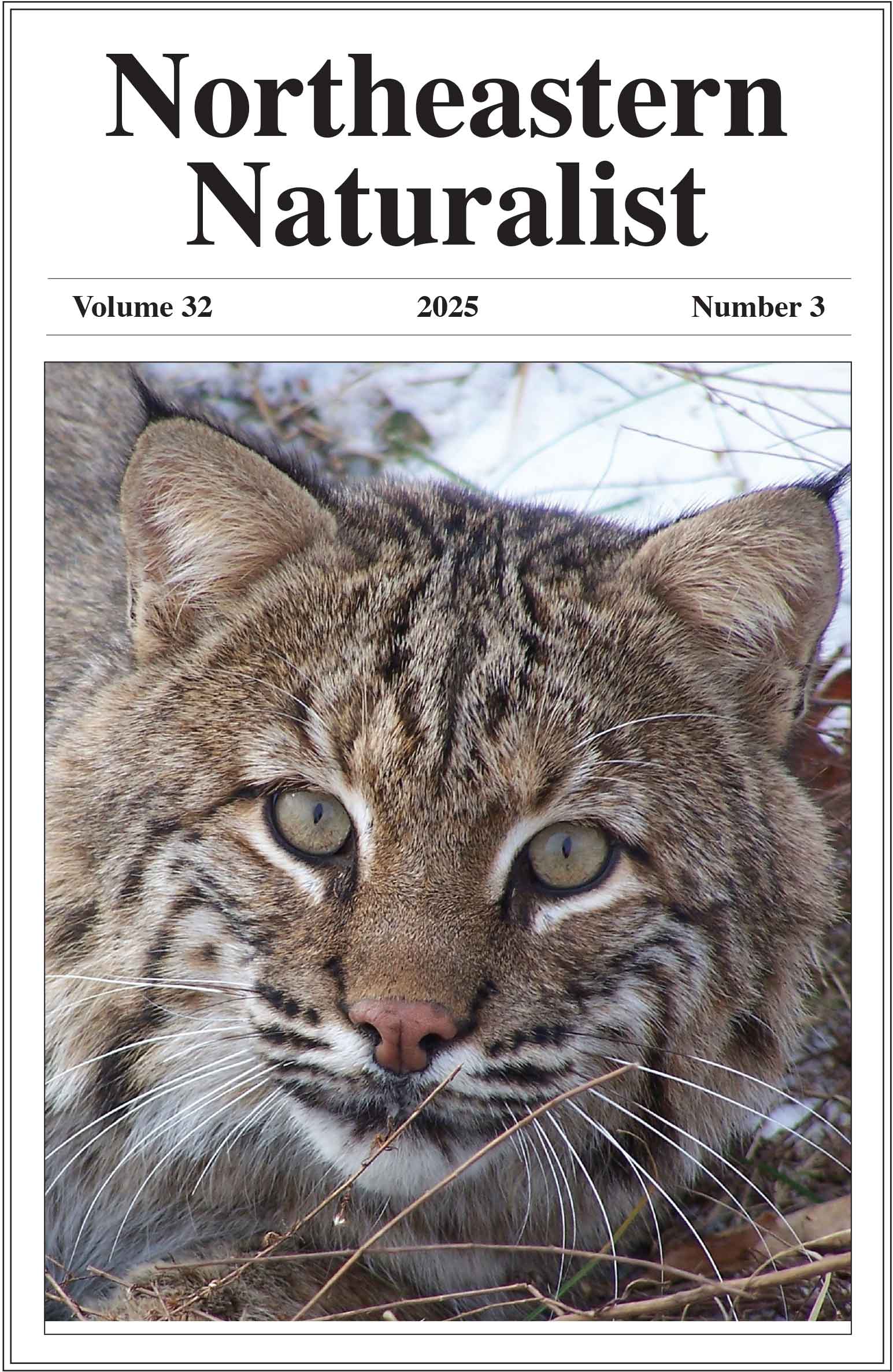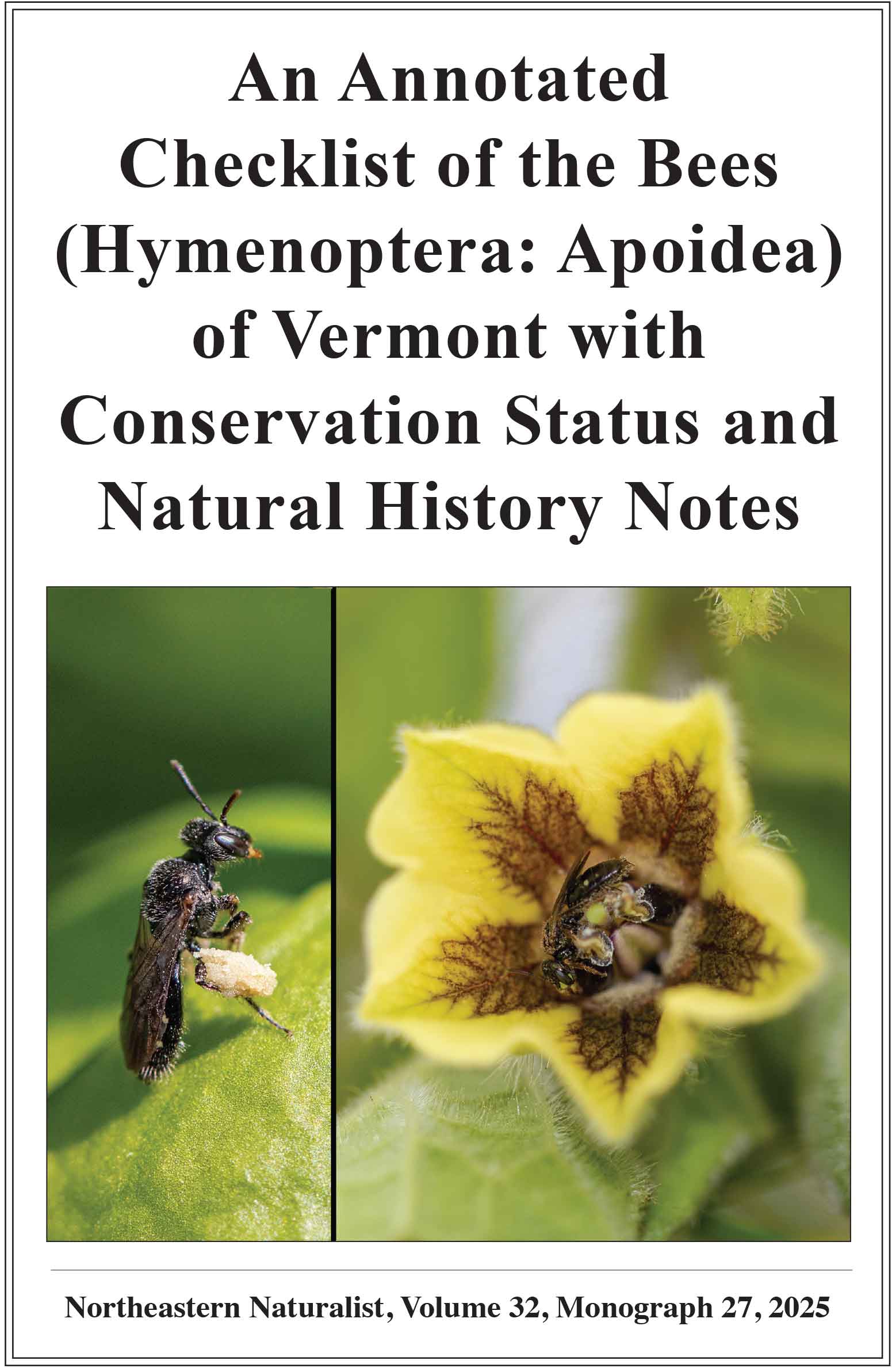Diel Movement by White Suckers (Catostomus commersonii) in Connected Northern Lakes
Benjamin Marcy-Quay1,2,* and Clifford E. Kraft1
1Department of Natural Resources, Cornell University, Ithaca, NY 14853. 2Current address - Rubenstein Ecosystem Science Laboratory, University of Vermont, Burlington, VT 05401. *Corresponding author.
Northeastern Naturalist, Volume 28, Issue 4 (2021): 430–443
Abstract
Consistently repeated daily habitat shifts by fish can expose or protect individuals from a variety of threats and influence nutrient transport between systems, yet logistical constraints make individual horizontal movement difficult to study on short time scales. As a result, diel movements by fish are often poorly documented. Suckers (Catostomidae) are a key group of fish that have been frequently examined with this in mind, as many species are large, long-lived, and comprise a large proportion of biotic biomass in many waters. Previous studies in rivers have shown that multiple sucker species exhibit complex, diel movement. We investigated the prevalence of short-term movement by the widely distributed Catostomus commersonii (White Sucker) in an interconnected, remote lake system within New York’s Adirondack region using PIT telemetry. These 2 lakes were in a remote setting of New York’s Adirondacks, and our tracking studies indicated a subset of the sucker population regularly traveled back and forth daily through a short, shallow channel. Direction of movement was strongly associated with time of day, and larger individuals were far more likely to engage in this repetitive behavior. Overall, these findings highlight the potential for extensive, yet generally unobserved, movement by White Suckers within connected lake systems.
![]() Download Full-text pdf (Accessible only to subscribers. To subscribe click here.)
Download Full-text pdf (Accessible only to subscribers. To subscribe click here.)
Access Journal Content
Open access browsing of table of contents and abstract pages. Full text pdfs available for download for subscribers.
Issue-in-Progress: Vol. 32(4) ... early view
Check out NENA's latest monograph and Special Issue:













 The Northeastern Naturalist is a peer-reviewed journal that covers all aspects of natural history within northeastern North America. We welcome research articles, summary review papers, and observational notes.
The Northeastern Naturalist is a peer-reviewed journal that covers all aspects of natural history within northeastern North America. We welcome research articles, summary review papers, and observational notes.